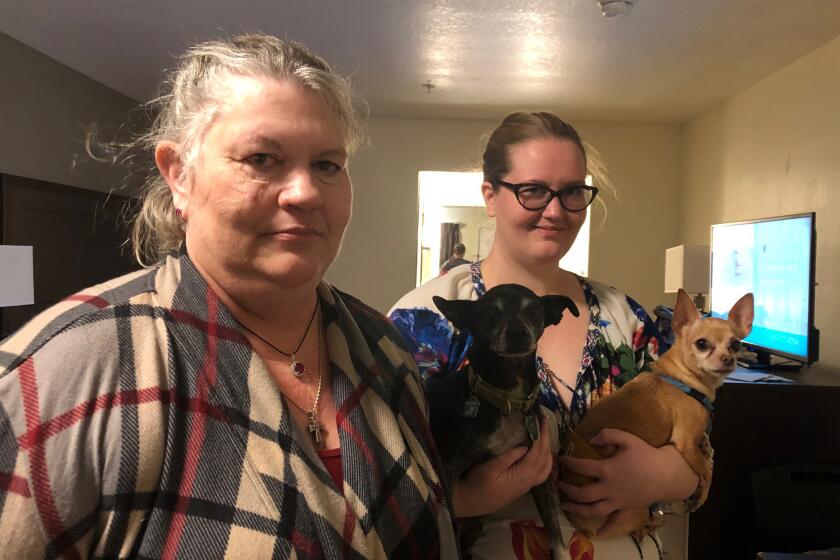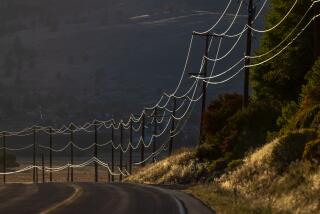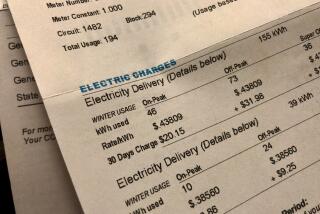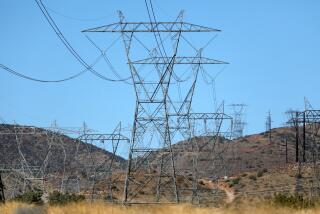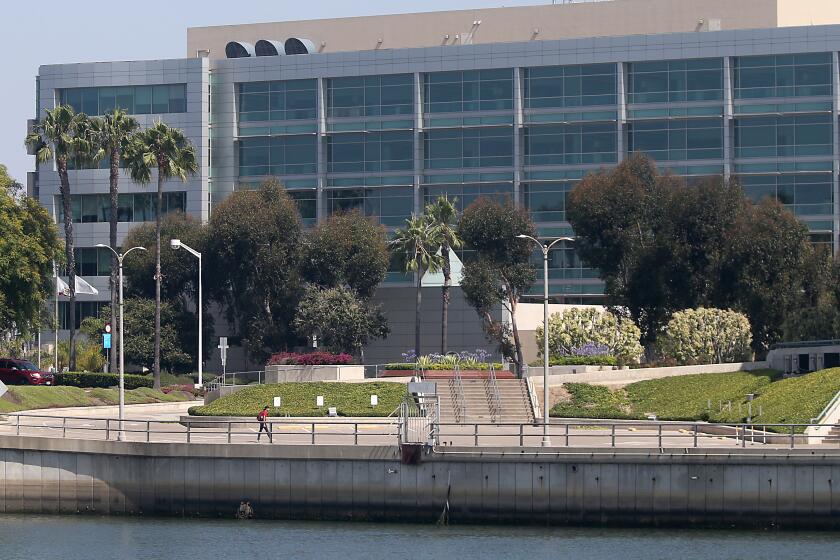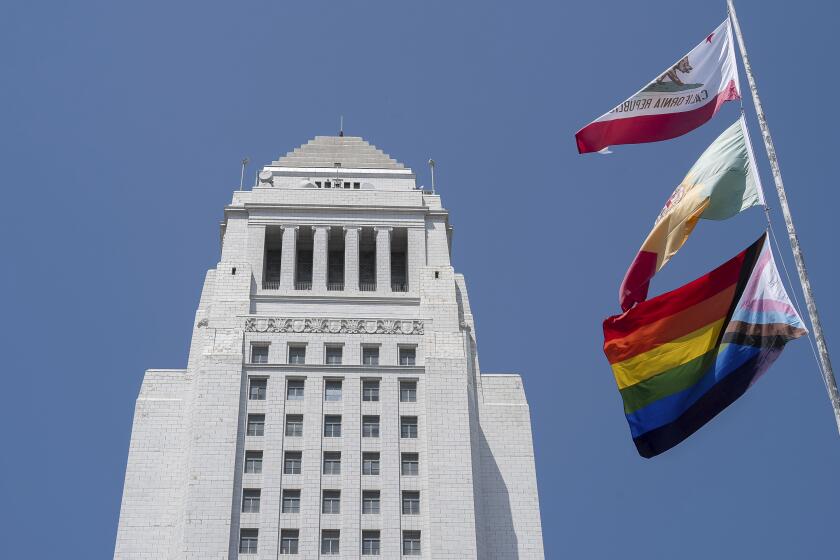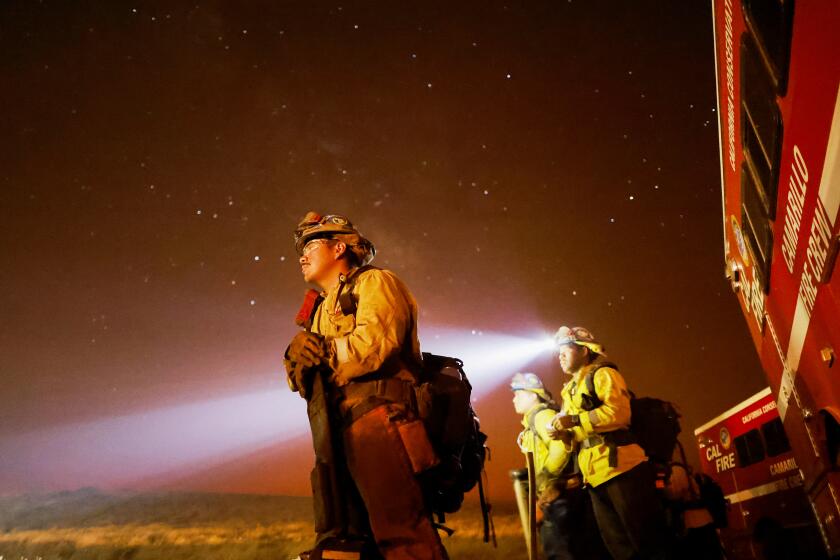Plan could force California utilities to reimburse customers for power shut-offs
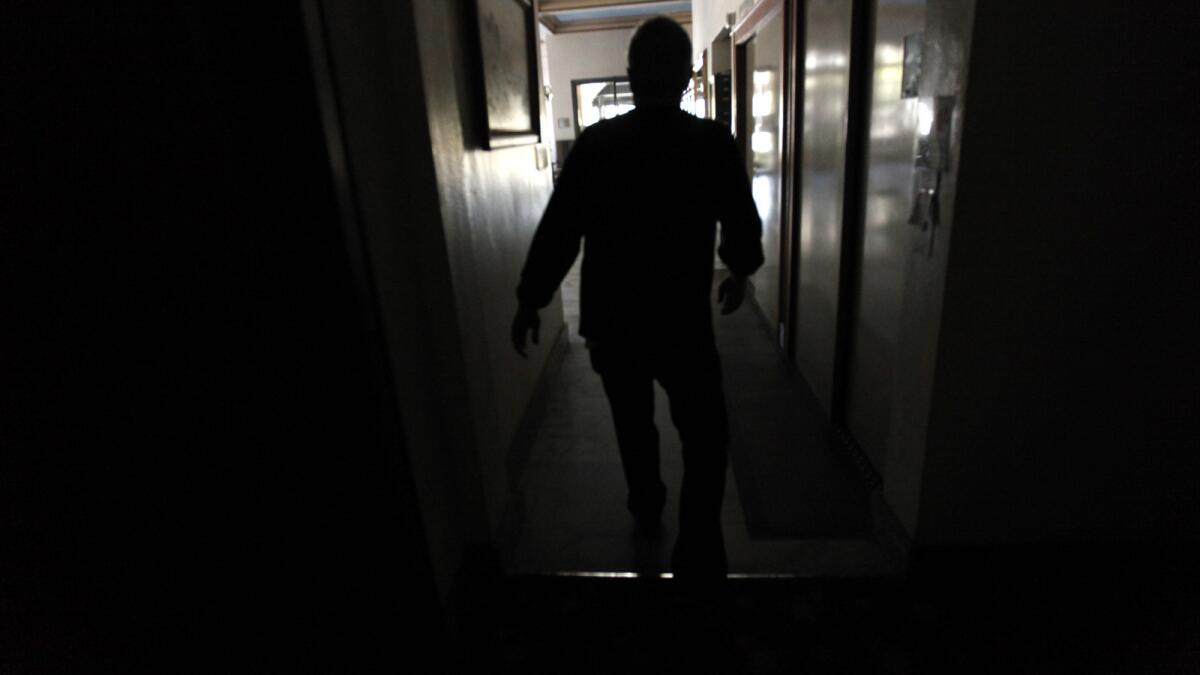
California utilities could be banned from charging for electricity during power shut-offs and required to reimburse their customers for spoiled food or other financial losses under legislation that cleared the state Senate on Monday.
Senate Bill 378, opposed by Pacific Gas & Electric and the state’s two other largest utilities, is a response to the power shut-offs that left millions in the dark last year, a tool the companies began using to reduce the risk of their electrical equipment starting wildfires. Supporters say the bill seeks to carefully balance the need to prevent blazes that have killed scores of Californians with the unintended consequences of power outages for residents and businesses.
“I’m not objecting to using surgical, well-planned blackouts to prevent wildfires,” said state Sen. Scott Wiener (D-San Francisco), who introduced the bill. “Right now the fundamental problem is that utilities have no incentive or obligation to take into account the harm to people that is caused by these blackouts.”
Widespread outages in October inspired concern throughout the state for elderly and medically fragile customers, who might not be able to survive without power. In Northern California, Gov. Gavin Newsom and other state officials criticized Pacific Gas & Electric for applying the blackouts too broadly and longer than necessary.
Businesses complained about being forced to close and losing revenue. Local governments struggled to keep traffic lights running, respond to 911 calls and maintain regular functions.
Wiener said he hopes his legislation will force utilities to consider the financial cost to their customers and to only use blackouts as a measure of last resort as originally intended. He described the existing framework of state laws and regulations as the”Wild, Wild West,” which allows utilities to shut off power to avoid billions in potential wildfire liabilities without weighing the public safety risks.
But critics contend that the bill could swing the pendulum too far in the other direction, resulting in fewer intentional blackouts and more wildfires.
“My concern is that we’re trying to save lives and these penalties may possibly lead companies to hesitate, to blink, when it come to the lives of individuals,” said state Sen. Susan Rubio (D-Baldwin Park), who voted for the bill but expressed reservations about its potential effects.
Under the proposal, state regulators would be required by June 1, 2021, to establish a mechanism for customers, local governments and others to seek reimbursement from utilities for losses from power outages and craft rules to determine if the utilities can increase rates to offset those payments. The bill would ban utilities from billing customers for electricity if they are out of power.
During the power cuts, rural residents in Lake County struggled with basic necessities, such as powering medical devices and keeping food fresh. There were few services to help them.
SB 378 also opens utilities up to civil liability if the California Public Utilities Commission determines the company failed to reasonably and prudently implement the outage. Wiener’s proposal allows for civil penalties of at least $250,000 for every 50,000 customers affected, which could be multiplied by each hour that an outage takes place.
The California Chamber of Commerce argues that the bill penalizes use of a safety measure already approved by the state. The Legislature originally supported shut-offs as a method of last resort to save lives, and voted in 2018 to require the state’s three investor-owned utilities to annually submit outage protocols to the state.
“While we recognize that [outages] cause significant financial impacts to all involved and that conversations around proper balance must continue, penalizing the use of [outages] is contrary to the state’s desire to prevent the catastrophic harm from wildfire-related events,” the chamber wrote in a letter opposing the bill to state legislators.
SB 378, opposed by PG&E, Southern California Edison and San Diego Gas & Electric, now moves to the Assembly as state regulators work simultaneously to develop new rules around power shut-offs in response to the sweeping outages last year. The CPUC is expected to release guidelines in May regarding identification and communication with at-risk communities prior to an outage.
More to Read
Start your day right
Sign up for Essential California for news, features and recommendations from the L.A. Times and beyond in your inbox six days a week.
You may occasionally receive promotional content from the Los Angeles Times.
